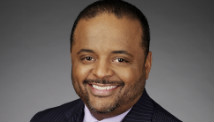GENEVA (Reuters) - United Nations investigators said on Monday that Syrian leaders they had identified as suspected war criminals should face the International Criminal Court (ICC).
The investigators urged the U.N. Security Council to "act urgently to ensure accountability" for violations, including murder and torture, committed by both sides in a conflict that has killed an estimated 70,000 people since a revolt against President Bashar al-Assad began in March, 2011.
"Now really it's time...We have a permanent court, the International Criminal Court, who would be ready to take this case," Carla del Ponte, a former ICC chief prosecutor who joined the U.N. team in September, told a news briefing in Geneva.
The inquiry, led by Brazilian Paulo Pinheiro, is tracing the chain of command to establish criminal responsibility and build a case for eventual prosecution.
"Of course we were able to identify high-level perpetrators," del Ponte said, adding that these were people "in command responsibility...deciding, organizing, planning and aiding and abetting the commission of crimes".
She said it was urgent for the Hague-based war crimes tribunal to take up cases of "very high officials", but did not identify them, in line with the inquiry's practice.
"We have crimes committed against children, rape and sexual violence. We have grave concerns. That is also one reason why an international body of justice must act because it is terrible."
Del Ponte, who brought former Yugoslav President Slobodan Milosevic to the ICC on war crimes charges, said the ICC prosecutor would need to deepen the investigation on Syria before an indictment could be prepared.
Pinheiro, noting that only the Security Council could refer Syria's case to the ICC, said: "We are in very close dialogue with all the five permanent members and with all the members of the Security Council, but we don't have the key that will open the path to cooperation inside the Security Council."
Karen Koning AbuZayd, an American member of the U.N. team, told Reuters it had information pointing to "people who have given instructions and are responsible for government policy, people who are in the leadership of the military, for example".
The inquiry's third list of suspects, building on lists drawn up in the past year, remains secret. It will be entrusted to U.N. High Commissioner for Human Rights, Navi Pillay, upon expiry of its mandate at the end of March, the report said.
Pillay, a former ICC judge, said on Saturday Assad should be probed for war crimes, and called for outside action on Syria, including possible military intervention.
Pinheiro said the investigators would not speak publicly about "numbers, names or levels" of suspects, adding that it was vital to pursue accountability for international crimes "to counter the pervasive sense of impunity" in Syria.
SEVEN MASSACRES IDENTIFIED
The investigators' latest report, covering the six months to mid-January, was based on 445 interviews conducted abroad with victims and witnesses, as they have not been allowed into Syria.
"We identified seven massacres during the period, five on the government side, two on the armed opponents side. We need to enter the sites to be able to confirm elements of proof that we have," del Ponte said.
"For example, in the attack on the university of Aleppo, there is information that it came from the government side and from the rebel side. If we had been able to enter and examine the site and carry out a scientific investigation, we would have a definitive answer," she said.
The U.N. report said the ICC was the appropriate institution for the fight against impunity in Syria. "As an established, broadly supported structure, it could immediately initiate investigations against authors of serious crimes in Syria."
Government forces have carried out shelling and air strikes across Syria including Aleppo, Damascus, Deraa, Homs and Idlib, the 131-page report said, citing corroborating satellite images.
"In some incidents, such as in the assault on Harak, indiscriminate shelling was followed by ground operations during which government forces perpetrated mass killing," it said, referring to a town in the southern province of Deraa where residents told them that 500 civilians were killed in August.
"Government forces and affiliated militias have committed extra-judicial executions, breaching international human rights law. This conduct also constitutes the war crime of murder. Where murder was committed as part of a widespread or systematic attack against a civilian population, with knowledge of that attack, it is a crime against humanity," the U.N. report said.
Those forces have targeted bakery queues and funeral processions to spread "terror among the civilian population".
Rebels fighting to topple Assad have also committed war crimes including murder, torture, hostage-taking and using children under age 15 in hostilities, the U.N. report said.
"They continue to endanger the civilian population by positioning military objectives inside civilian areas" and rebel snipers had caused "considerable civilian casualties", it said.
"The violations and abuses committed by anti-government armed groups did not, however, reach the intensity and scale of those committed by government forces and affiliated militia."
(Reporting by Stephanie Nebehay; Editing by Alistair Lyon)

